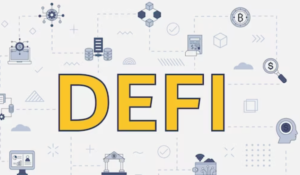$DEGEN $ETH
#DegenChain #Blockchain #Cryptocurrency #Ethereum #SmartContracts #ThirdPartyRisk #NetworkStability #CryptoSecurity #Decentralization #Conduit #CryptoTechnology #RollupKeys
Degen Chain’s recent confrontation with Conduit has brought to light the inherent risks associated with relying on third-party custody solutions in the blockchain ecosystem. This dispute centers around Conduit’s alleged withholding of crucial rollup keys, which are essential for Degen Chain’s operations and its network stability. Rollup keys play a vital role in ensuring transactions on blockchain networks are processed efficiently and securely. Without access to these keys, Degen Chain faces significant operational hurdles, potentially impacting user transactions and the overall trust in its platform.
This situation underscores a broader issue within the blockchain and cryptocurrency sectors: the balance between leveraging third-party services for technological advancements and the necessity of maintaining control over critical operational aspects. Third-party providers like Conduit often offer essential services, including scalability solutions and enhanced security features. However, the reliance on such entities can also introduce points of vulnerability, as demonstrated by Degen Chain’s predicament. This incident raises questions about the degrees of decentralization and autonomy promised by blockchain technologies, especially when fundamental operations can be hindered by disputes with service partners.
For the wider cryptocurrency market and blockchain community, the Degen Chain and Conduit situation acts as a cautionary tale. It highlights the importance of transparent and reliable partnerships between blockchain platforms and their service providers. Additionally, it underscores the need for contingency plans and alternative solutions should access to critical services or functionalities become compromised. The market’s reaction to these types of disputes can vary, with potential impacts on the valuation of related cryptocurrencies and the perception of security within the blockchain domain.
Looking forward, the resolution of the dispute between Degen Chain and Conduit will likely serve as an important case study for the blockchain industry. It emphasizes the necessity for clear agreements, reliable mechanisms for conflict resolution, and perhaps most importantly, the development of standards and practices that can minimize the risks associated with third-party dependencies. Moreover, it may prompt blockchain projects to reevaluate their operational structures and the extent to which they depend on external entities for key services, thus steering the community towards more resilient and self-sufficient models of operation.






Comments are closed.